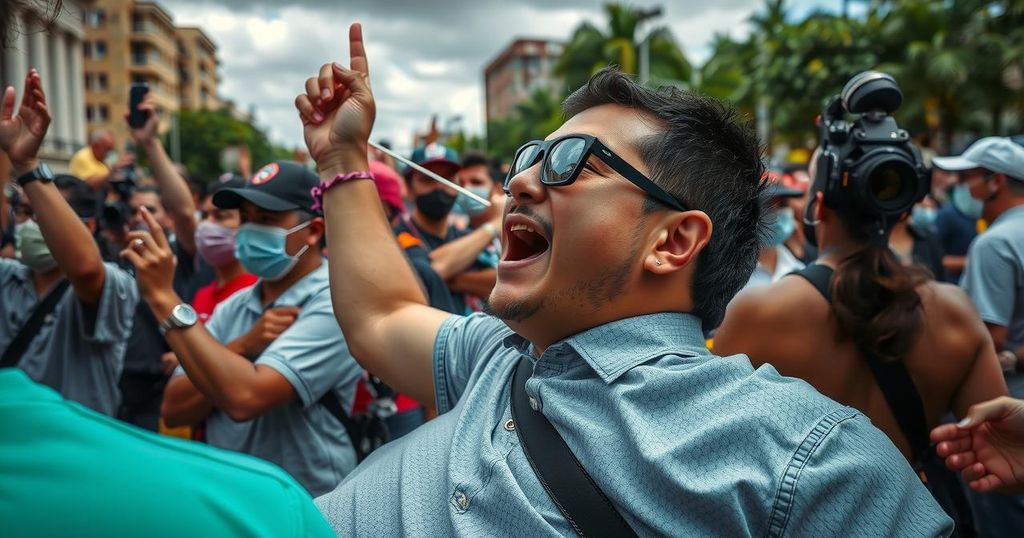Release of 146 Protesters Amid Controversial Elections in Venezuela

Venezuela’s government has released 146 election protesters, raising the total to 1,515 amid a crackdown following the controversial July election. President Nicolas Maduro is set to be inaugurated for a third term, despite significant opposition claims of electoral fraud and ongoing human rights abuses. Edmundo Gonzalez, the opposition leader, remains in exile and seeks international support against Maduro’s regime.
The Venezuelan government has announced the release of 146 individuals detained during protests that erupted following the July 28 presidential election results. This statement, made by Attorney General Tarek Saab, highlights a cumulative total of 1,515 releases since the crackdown aimed at suppressing dissent post-election. These developments coincided with President Nicolas Maduro’s upcoming swearing-in for a disputed third term, as he contends against significant opposition challenges.
In the lead-up to the election, Mr. Maduro was reportedly trailing candidate Edmundo Gonzalez, yet following the closing of the polls, his administration proclaimed victory abruptly without the customary voting breakdown. This prompted considerable backlash, with opposition factions presenting evidence they allege supports Gonzalez as the legitimate victor.
Critics of President Maduro have voiced concerns over alleged human rights abuses amid the violent crackdown against demonstrators—reported to have resulted in around 2,000 detentions and 23 fatalities. Despite these allegations, the Supreme Court and the electoral authorities have officially upheld Maduro’s election results, with government representatives suggesting the opposition collaborates with foreign adversaries.
After an arrest warrant was issued for Gonzalez, who subsequently fled to Spain, the government has actively pursued his apprehension, offering a $100,000 reward for information regarding his whereabouts. Meanwhile, Gonzalez remains committed to returning to Venezuela and has called on the military to recognize him as the rightful leader. He articulates a perspective of assuming command by the will of the electorate, reinforcing his intentions to challenge Maduro’s regime. Furthermore, Gonzalez has begun international engagements to garner support against the Maduro administration, including a planned visit to the White House. Currently, the effectiveness of external pressure in countering Maduro’s inauguration remains uncertain, particularly given the context of U.S. economic sanctions that critics argue contribute to deepening the national crisis, which has led millions to seek refuge abroad.
The situation in Venezuela has been marked by political turmoil and socio-economic crises, predominantly under the leadership of President Nicolas Maduro. Following a contentious election where disagreements over the legitimacy of the results erupted, the government faced mass protests which were met with significant repression. Various human rights organizations have documented abuses, sparking international condemnation and efforts to hold the regime accountable. The complex dynamics of Venezuelan politics involve opposition leaders working to undermine Maduro’s authority while seeking recognition from foreign governments, further complicating the landscape.
In conclusion, the recent releases of detained protestors by the Venezuelan government signify a response to international criticism as President Maduro prepares to assume a third term in a highly disputed election. The opposition, spearheaded by Edmundo Gonzalez, continues to bolster claims of electoral fraud while rallying for support against Maduro’s administration. The political climate remains fraught with tension, with continued human rights concerns and calls for a more democratic process in Venezuela.
Original Source: www.aljazeera.com







